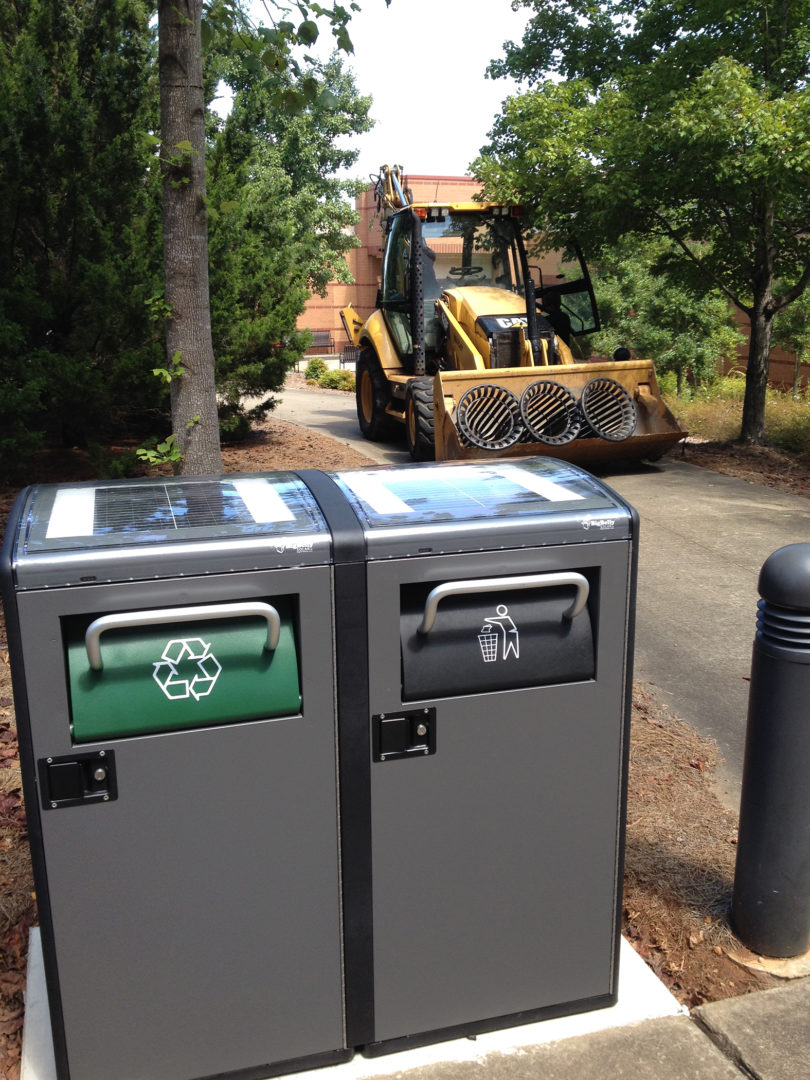Athens, Ga. – The University of Georgia has installed 40 additional solar-powered waste reduction stations throughout the UGA Athens campus to make it easier to recycle bottles, cans, paper and plastic.
Installed by the Facilities Management Division, the project is part of ongoing effort to make it equally as easy to recycle as it is to throw something away.
Each new outdoor station has one bin for mixed recyclables and one bin for landfill items. In general, paper, plastic, metal and glass go into the recycling bin; food wrappers, food waste and Styrofoam go in the trash. The “smart” and enclosed solar-powered bins keep out rain and unwanted critters, and have effectively increased exterior recycling rates by about 40 percent.
In total, UGA now has more than 70 solar-powered waste reduction stations working to keep materials out of the Athens-Clarke County landfill.
“I think the technology will inspire more people to use the bins, and hopefully to think about where their waste is going,” said John Derosa, an environmental engineering major from Lilburn, who’s helping to lead a “Green Labs” initiative to promote best practices in safety and sustainability in laboratories at UGA.
The solar-powered waste reduction stations are one step toward meeting goals in UGA’s 2020 Strategic Plan of diverting 65 percent or more of campus waste from the local landfill.
The stations also save the university both time and money. When more waste is kept out of the landfills, UGA pays less in landfill fees. And UGA staff spend less time collecting and transporting trash and recycling.
What used to take approximately 3,500 hours in labor a year to collect now takes around 200 hours, said Cale Caudell, support services manager in the UGA Facilities Management Division. Because the smart bins send data for a daily report by email and text on when and where targeted servicing and emptying is needed, workers are now taking fewer service trips.
According to Tom Satterly, assistant vice president for Facilities Management Division, “FMD is excited to use ever-smarter machines, leveraging technology to improve our ability to efficiently and effectively perform what have traditionally been manual labor duties. Bigbelly bins empower just-in-time collection, saving FMD labor, time and fuel while ensuring there are no overflow issues on the campus. Through implementing this effective ‘human + machine’ strategy, FMD is freeing up time for our staff to perform other valuable tasks.”
For more information on sustainability initiatives at UGA, see http://sustainability.uga.edu/.





